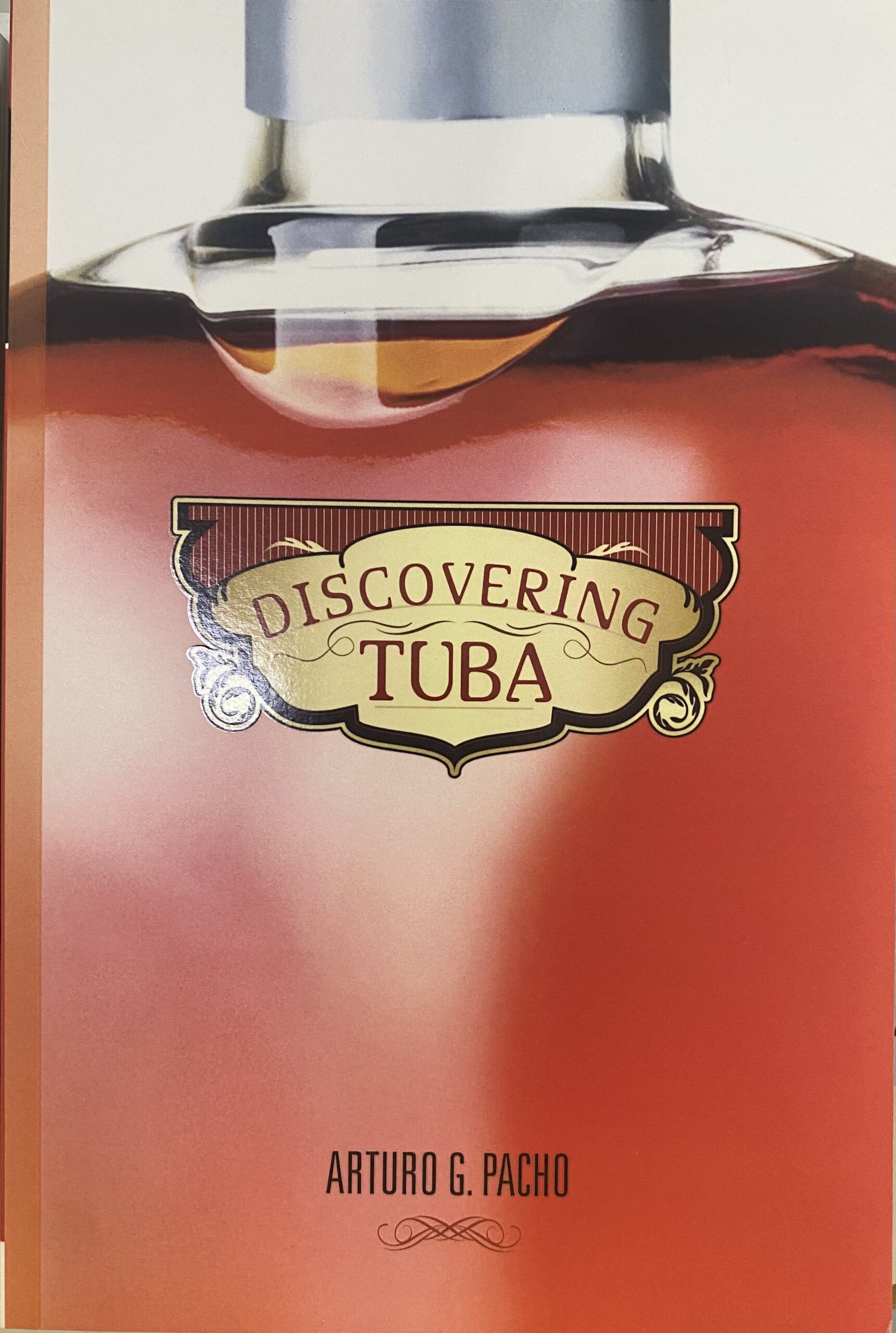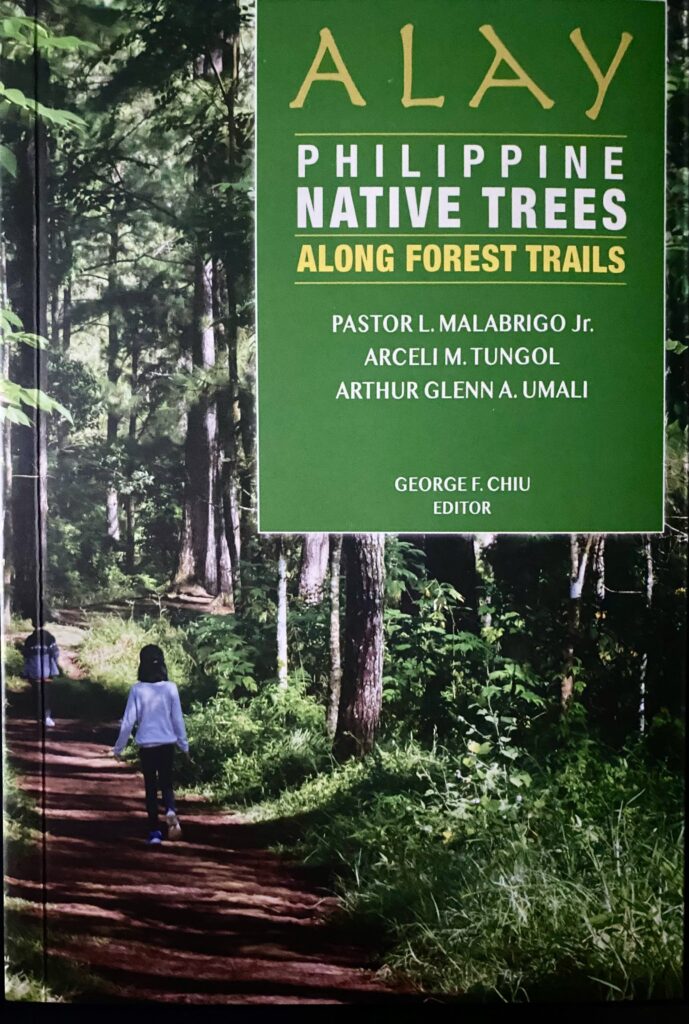Your cart is currently empty!
Discovering tuba

by Arturo G. Pacho
Tuba was, is, and always will be the people’s drink-homegrown, unpretentious, readily accessible, and as far as general knowledge is concerned, devoid of any standards of quality or drinking etiquette. But of course, aside from the supreme ability of being able to drink quantities of it without toppling over in drunken stupor, there are standards of flavor as any connoisseur will tell you.
-MERLIE ALUNAN, writer and teacher, UP Visayas Tacloban College
The tuba wine is found in many parts of the Philippines, not just in Leyte or Samar. Tuba uplifts the spirit and the body and has the power to either intoxicate or to energize. To some it is a bitter drink, and to others a sweet and lively drink. That is the paradox of this drink because it also reflects both the bitter and sweet lives of those who gather, ferment, and sell the wine. The book describes that life in the coconut farm can be unsettling and hard, yet the tuba gatherer looks to a better and equitable future.
-LEO ALMERIA, interior designer and advocate for preserving historical buildings in Leyte
An “alamat” (mythical legend) in reverse, unraveling the mystique of tuba, thus giving it the identity it deserves, and promoting pride beyond its commercial prospects. Reading the book is to look into the eyes of one who has quaffed tuba and understood why, at some time, one must make a toast to life, or dance to the strums of a lone guitar, or move with flair and hearty enjoyment to the beat of a drinking song. To pass up on the chance to make the toast is to miss out on an unforgettable experience.
-DALISAY CAPUCION-SEVILLA, NGO volunteer and management consultant to the Provincial Governor of Leyte
This book introduces readers to tuba, an indigenous wine of the Philippines collected from each gentle drip of the sap from the inflorescence of a coconut. In Leyte and Samar, tuba is the traditional drink that flows freely during celebrations, fiestas, weddings, funeral wakes, and birthday parties. The wine binds together the Waray-waray-speaking people to seek a common purpose and gives them hope for a better future despite natural calamities, tragedies, and benign neglect.
Status: Available, In Stock
Price: PHP300.00
ISBN: 9789715427661
Author: Arturo G. Pacho
Genre: History
Publisher: The University of the Philippines Press
About
From Booksellers to Booklovers
Founded in the late 1940s by the Po Brothers, the bookstore was built on a simple yet profound philosophy: when you visit, no one will ask you what you want. You are free to ramble where you will; to handle any book; in short, to browse at leisure.

Leave a Reply